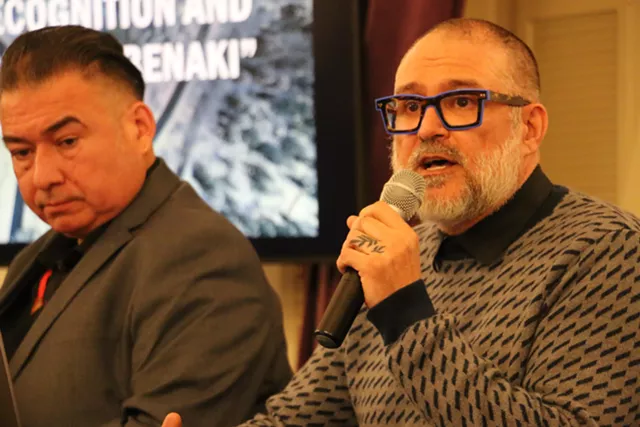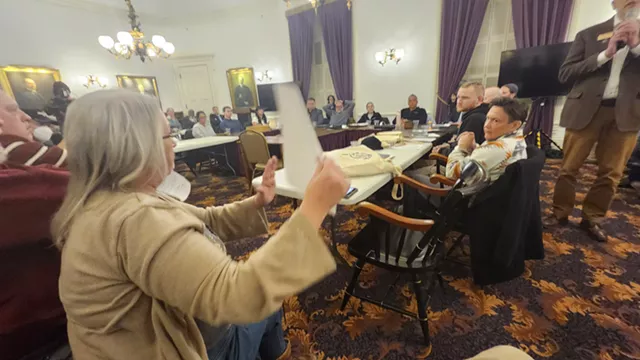The event was billed by its organizer, Rep. Troy Headrick (I-Burlington) as a chance for members of the Odanak and Wôlinak First Nations in Québec and their supporters to explain why they feel the Vermont tribal recognition process was flawed.
A flyer for the event asked “What If We Got It Wrong?: Continuing the Process of Listening to Unheard Voices.”
Headrick said he finds the claims by the Odanak and scholars who’ve researched the state recognition process to be “incredibly compelling” and hoped his colleagues could be convinced to take a second look at the issue.
“All of the evidence indicates that the four self-identified Abenaki tribes in Vermont are not descended from Indigenous people. They’re all descended from French Canadians and Europeans,” Headrick said.
State tribal leaders aggressively and repeatedly objected to the claims made by the Odanak and took offense at what they viewed as efforts to delegitimize them.
A number of lawmakers attended the event, but none spoke in favor of reopening the recognition process. Democratic leaders have said they have little interest in revisiting an issue they consider resolved.
The Québec-based tribes objected back in 2011 and 2012 to Vermont lawmakers’ decision to recognize four tribes in the state: the Elnu Abenaki, the Nulhegan Band of the Coosuk Abenaki Nation, Koasek Band of the Koas Abenaki Nation and the Abenaki Nation at Missisquoi.
Over the past three years, the Odanak and Wôlinak tribes have been waging an increasingly public campaign denouncing the Vermont tribes as illegitimate and the process the state used to recognize them as flawed.
“You weren’t wrong. You were misled,” Jacques Watso, an Odanak First Nation councilor, told lawmakers.
Watso and others argued, as they have at several forums hosted by the University of Vermont in recent years, that Vermont’s tribes are not actual descendants of Abenakis. In the 1700s and 1800s, the real Abenakis, they argue, moved north and resettled along the St. Francis River in what is now Québec.
Beginning in the 1970s, some people of French Canadian ancestry in Vermont and surrounding states, instead of facing their history of colonization, began to claim “an idealized Abenaki identity,” Watso said.
This effort to appropriate the culture of native groups wasn’t limited to Vermont, he said. “This is not a local issue, but a global problem,” Watso said.
At several points, members of Vermont’s four tribes interrupted the guests, shouting objections and challenging them to back up their claims. Headrick at times struggled to keep the conversation civil.
“What you’re saying is pretty arrogant,” Chief Don Stevens of the Nulhegan Band said to the group.
Stevens tossed a binder of documentation down on a table and said claims that the Odanak and Wôlinak tribes were the only arbiters of who is a true Abenaki were false.
“You might feel like you are the only authority, but that’s just not historically accurate,” Stevens said.
Rich Holschuh, an Elnu band member who lives in Brattleboro and a former chair of the Vermont Commission on Native American Affairs, said he regretted that the forum was turning more into a debate than a conversation.
“Why are we talking past each other, at decision makers and politicians, instead of with each other?” he said.
Holschuh then spoke directly to Watso.
“I am related to you,” Holschuh said.
“No you’re not,” Watso replied.
As tensions rose, Melody Ferland, a member of the Abenaki Nation of Missisquoi from Highgate Springs, had heard enough.
“You can go home anytime,” Ferland said to one of the panelists, Denise Watso, a New York resident who is an Odanak member.
Denise Watso turned and glared at Ferland.
“I am home,” she said.


